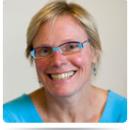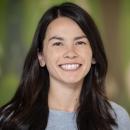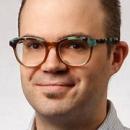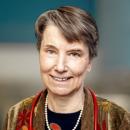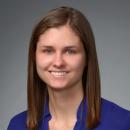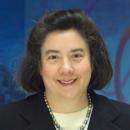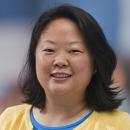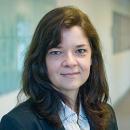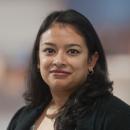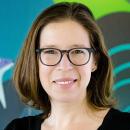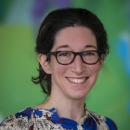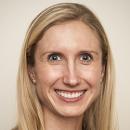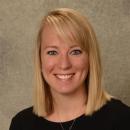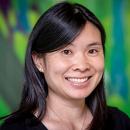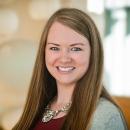Mission Statement
The mission of the Pediatric Endocrinology Fellowship at The University of Washington is to provide a diverse, comprehensive training environment that nurtures innovation, problem solving and compassionate care.
Program Overview
The Pediatric Endocrinology Fellowship is an ACGME-accredited, three year program established in 2004. The Division of Endocrinology currently includes 21 faculty members, 12 advanced care practitioners, 15 certified diabetes educators, and dedicated nutrition and social work staff. The division provides care for children in the Puget Sound region and eastern Washington. As Seattle Children’s has a referral base from the WWAMI region (Washington, Wyoming, Alaska, Montana, Idaho), children with complex disease from these regions are seen as well. This large and varied patient population is served by the division at diabetes and general endocrine clinics, or in multispecialty clinics with other subspecialties for comprehensive care of complex diseases. Division members are involved in multispecialty clinics that serve children with metabolic bone disorders, Prader Willi Syndrome, differences in sex development, muscular dystrophy, gender affirming care, neuro-oncology diseases, insulin resistance, Turner syndrome, or need assistance in transitioning to adult diabetes care. A team approached is used to care for the 2200+ children with Type 1 Diabetes that we serve, with multidisciplinary clinic visits that include nutrition and social work.
Pediatric endocrine fellowship training involves clinically intensive training in Year 1 and project based training in research techniques, quality improvement methods, and/or teaching scholarship in years 2 and 3. The project based training is designed to culminate in a ‘work product’ or manuscript, a requirement for subspecialty board eligibility by the American Board of Pediatrics. To tailor nonclinical training to a fellows’ career goals, we offer two different tracks – physician-scientist or academic clinician. These tracks offer a different balance of clinical and research training in years 2 and 3. Fellows may conduct a hypothesis-driven project with faculty within the division, or with mentors at the University of Washington. Current research in the division includes quality improvement work in diabetes, clinical and/or basic science research in Type 1 Diabetes, Type 2 Diabetes, Cystic Fibrosis related diabetes, Diabetes insipidus, Differences in sexual development, Transgender Care, Prader-Willi Syndrome, obesity, and mechanisms of hypothalamic and pituitary dysfunction after neurosurgery.
First Year
First year is spent on clinical activities in outpatient and inpatient settings. 20 weeks are scheduled for inpatient or outpatient responsibilities. Inpatient Endocrine Glucose and Endocrine Consult services are separate services, staffed by different attending faculty. The fellow on service is assigned to one service and is not responsible for both during the day. During outpatient blocks, the fellow is expected to attend 4-7 half day clinics/week of faculty’s patients, either general endocrine, diabetes, or multispecialty clinics. Fellow continuity clinic is started in year one. Eight weeks of research time is set aside for the fellow to decide upon a training track, select appropriate mentors, and a formulate a hypothesis-driven project. During division seminars, fellows will present cases for discussion, evaluate manuscripts for journal club, and present research ideas.
Second Year
Academic Clinician track: Fellows continue with 12 weeks of inpatient time in addition to weekly full day continuity clinic. An additional continuity clinic in a multidisciplinary clinic is a possibility. The remainder of the time is spent in the training in and execution of their hypothesis-driven scholarly project. Fellows are expected to present their projects twice yearly to the Endocrine division in the division seminars.
Physician- Scientist Track: Fellows continue with 4-6 weeks of inpatient time and ½ day of weekly continuity clinic. The majority of the year is spent in the training and execution of their chosen research project. Fellows may be part of a T32 research training program that offers a formalized curriculum and seminars. Fellows are expected to present their research to the Endocrine division twice yearly.
Third Year
Academic Clinician track: Fellows complete 12 weeks of clinical work in addition to weekly full day continuity clinic. The additional continuity clinic in a multidisciplinary clinic will continue, if chosen in year 2. Scholarly work continues, with expectation that scholarly work progress be presented at national meetings. The third year fellow is expected to take an active/supervisory role in teaching of residents and students.
Physician- Scientist Track: Fellows complete 4 weeks of clinical work in addition to ½ day weekly continuity clinic. Formal research training continues, with expectation that research progress be presented at national meetings and/or in a manuscript submitted for publication. The third year fellow is expected to take an active/supervisory role in teaching of residents and students.
Our three-year fellowship seeks physicians who will have completed two to three years of training in an ACGME approved pediatric residency program or who are ECFMG certified and have completed all three steps of the USMLE.
Applications are accepted through ERAS.
Seattle Children's Hospital

Seattle Children's Hospital is both a community hospital for greater Seattle and the pediatric referral center for the Northwest providing excellent pediatric care to meet the medical, surgical and developmental needs of children in the WWAMI region (Washington, Wyoming, Alaska, Montana, and Idaho). Serving as the main clinical training site for pediatric residents, this 423-bed hospital is conveniently located 1.5 miles from the University of Washington campus in a residential neighborhood of Seattle. The staff consists of University faculty and Seattle Children's full-time physicians.
Additional Information
Fellowship Leadership
Current Fellows
Hanine Alarab, MD
Medical School: Beirut Arab University, Beirut-Lebanon
Residency: American University of Beirut Medical Center, Beirut-Lebanon
Elizabeth Behre, DO
Medical School: Des Moines University, College of Osteopathic Medicine and Surgery
Residency: Rush University Medical Center, Chicago IL
Lara McHan, MD
Medical School: University of Arkansas, Medical Sciences College of Medicine
Residency: University of Rochester, Rochester NY
Recent Alumni
Rohan Henry, MD, MS
Nationwide Children’s, Columbus, OH
Harvey Chiu, MD
UCLA Health
Carolina Di Blasi, MD
Seattle Children’s Hospital
D. Millie Nandi-Munshi, MD
Seattle Children’s Hospital
Angela Tridgell, MD
Children’s Hospitals and Clinics of Minnesota
Heba Ismail, MBBCh, MSc, PhD
Indiana University
Faisal Malik, MD
University of British Columbia
David Werny, MD
Seattle Children’s Hospital
Alissa Roberts, MD
Seattle Children’s Hospital
Angel Nip, MD
University of California, San Francisco
Allison LaRoche, MD
Swedish Pediatrics
Arushi Verma, MD
Santa Clara Valley Medical Center
Jennifer Bracamontes, MD
Alaska Native Medical Center
Kelsey Eitel, MD
Seattle Children's Hospital
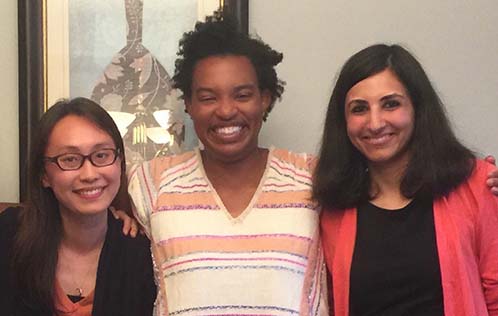
(left to right) Angel Nip, Allison LaRoche and Arushi Verma
Lauren Hart
Administrative Program Assistant
Seattle Children's
4800 Sand Point Way NE
PO Box 5371
M/S: OC.7.820
Seattle, WA 98145-5005
